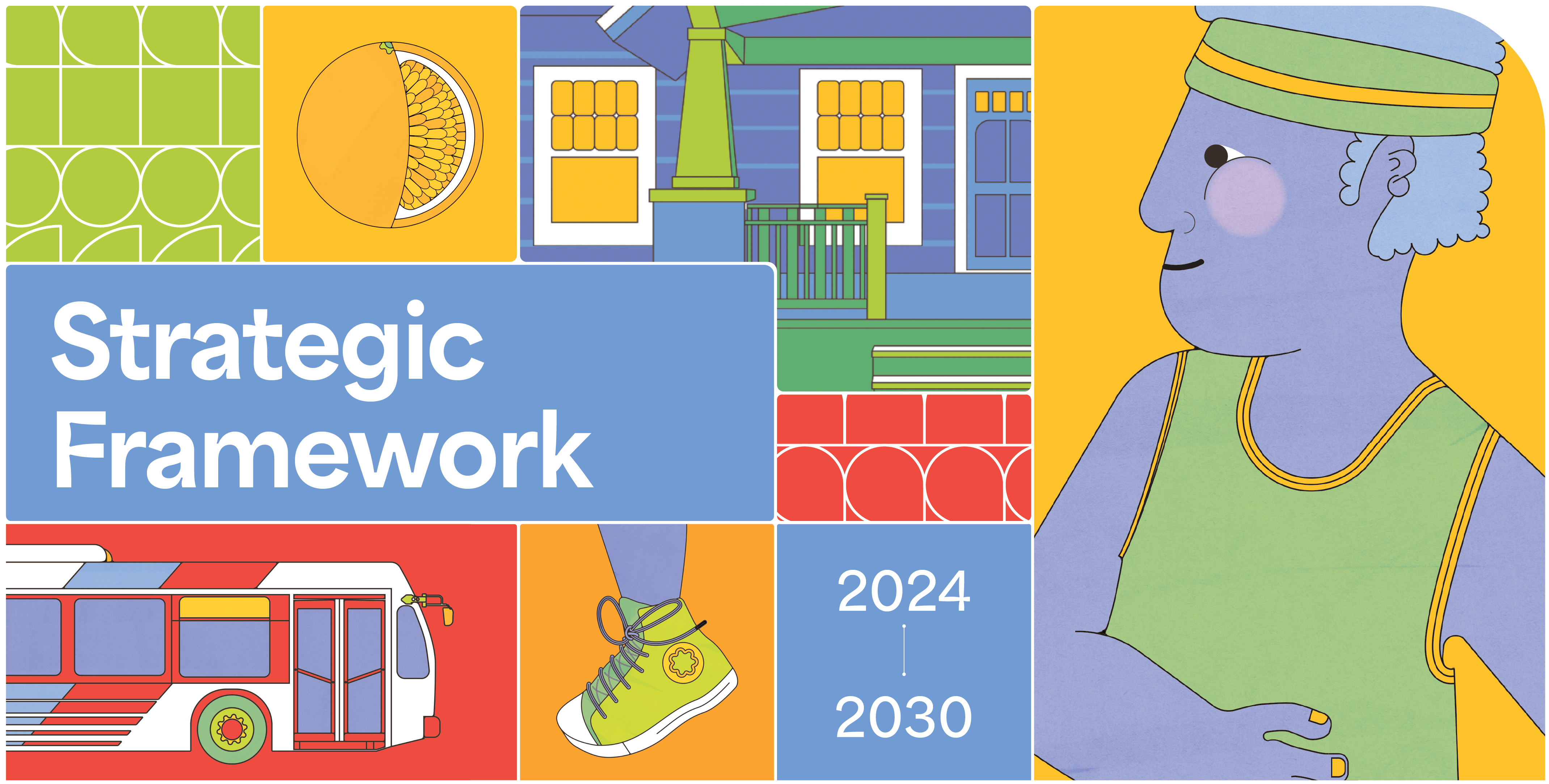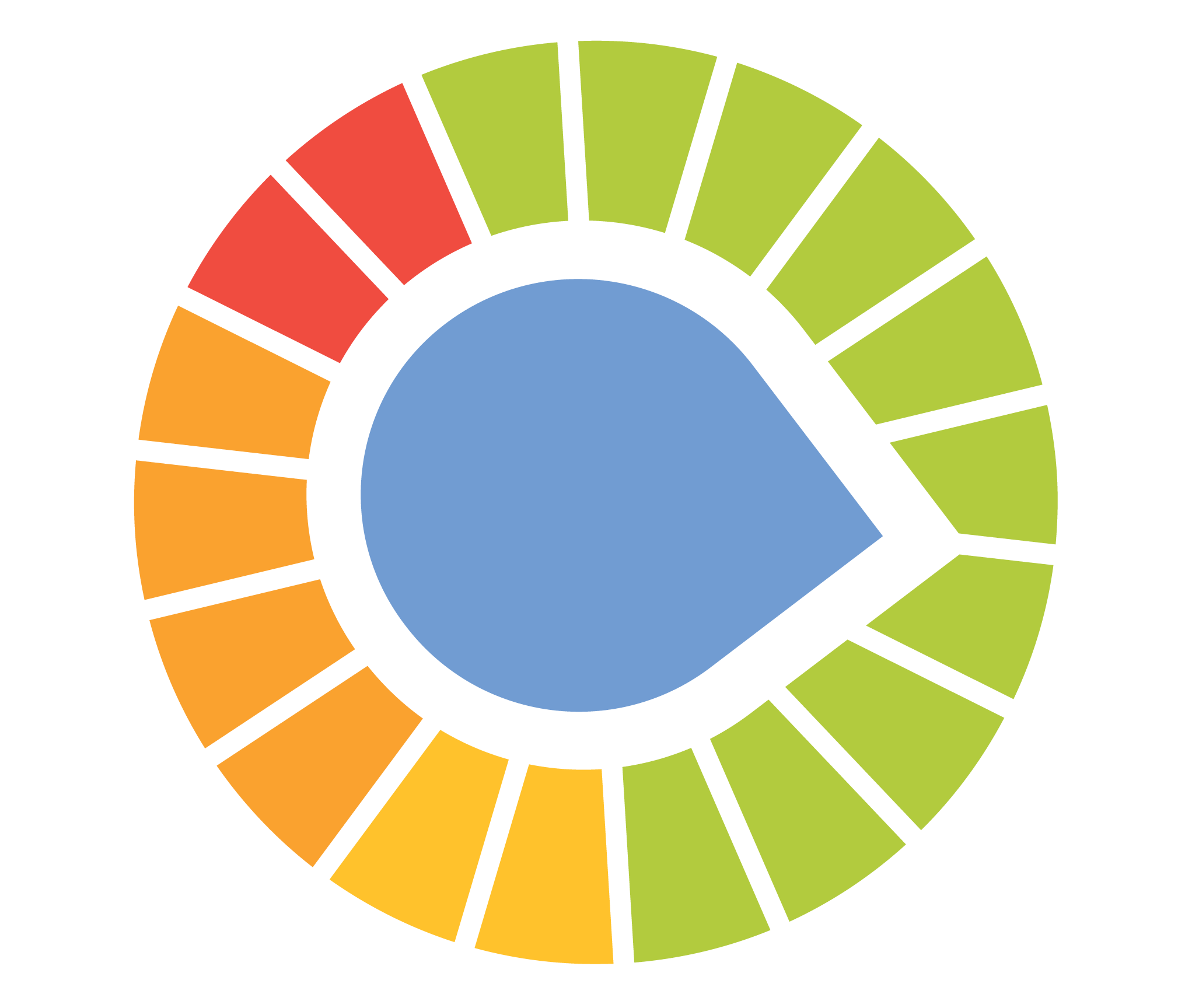
As an institution of the Episcopal Diocese of Texas, Episcopal Health Foundation (EHF) is grounded in Christian beliefs that call for equity before God and a mission to serve those in need—especially in the promotion of health and well-being among the 15 million Texans in the 80 counties of the diocese.
In response to this call, EHF is rooted in the pursuit of equitable health for all Texans. This big goal requires bold investments and innovative actions to catalyze positive shifts in the health landscape of Texas. As EHF commits to Igniting Change, we have listened and learned from the experiences and priorities of congregational and community members, local and national partners, grantees, health experts, and research partners. Remaining true to our core values and building on the work of the last eight years, EHF has built its new strategic framework to advance and focus its promise to improve health for all Texans, especially among those who face the most obstacles to health.
Opportunities to be healthy are not equal across all populations. Life expectancy for Texans in zip codes separated only by a freeway or a few miles can vary by more than 20 years. One in five Texans still does not have health insurance. EHF recognizes that many low-income and marginalized communities in urban and rural settings have poorer health outcomes due to poverty and discrimination resulting in limited access to quality jobs, schools, housing, food, and health care. Discrimination includes historic and systemic prejudice and bias based on race and ethnicity that have a direct negative health impact for communities of color across the state. Addressing these inequalities and improving health for all Texans requires us to address non-medical drivers of health: factors and conditions outside the health care system that significantly influence a person’s overall health and well-being.
With a vision to achieve healthy communities for all by improving health, not just health care, EHF’s previous strategic work changed the conversation and the way we think about health in Texas.
- Government officials, state agencies, health insurance plans, health care providers, and community members recognize the importance of addressing non-medical drivers of health and are taking action to support non-medical, health-related needs.
- Community health clinics, health resource centers, and behavioral health providers have increased their services and their reach to low-income and underserved communities.
- Congregations and community collaboratives have increased capacity to engage with other partners and those they want to serve to envision and create healthier communities and address upstream barriers to health equity.
- Clinics and community-based organizations have strengthened their capacity to provide skills to parents and caregivers to promote healthy early relationships and brain development during a child’s first three years.
Our Continued Commitment to Health Equity
For Texas to fully realize its great potential, all Texans must have the ability to thrive. Equity, specifically health equity is an essential part
of that future.
Using the Robert Wood Johnson Foundation’s definition, Health Equity means that “everyone has a fair and just opportunity to be as healthy as possible. This requires removing obstacles to health such as poverty, discrimination, and their consequences, including powerlessness and lack of access to good jobs with fair pay, quality education and housing, safe environments, and health care.”
Pursuit of fair and just opportunities for all Texans drives us to address health equity in a more effective way. While EHF has successfully worked with partners to improve the health opportunities for those who continue to be marginalized by existing systems, there is still much work to be done.
As EHF moves into its new strategic season, it reaffirms its long-term commitment to invest in and promote equity in organizations, communities, and initiatives to accelerate a bold vision that all Texans have a just opportunity to live their healthiest lives.
Building on Our Foundation
EHF’s determination to change the conversation to improving health, not just health care has strengthened health-focused change-makers and paved the way for health transformation in Texas. Focusing on non-medical drivers of health like reduction of asthma triggers in homes, creating and maintaining safe places to exercise, increasing access to healthy foods, and removing barriers to health care access are just some of the ways EHF is helping change-makers address the root causes of poor health.
Whole-person well-being requires addressing non-medical drivers of health and must include integration between accessible health services and healthy communities supported by health-promoting policies at all levels.
In this new chapter of our work, EHF will accelerate the positive change that began with shifting the way Texans think about health and tackle the unequal and unacceptable health realities faced by people with lower incomes, populations of color, and other under-resourced communities across the state.
Action Areas
Health and Health Care Services
Equitable access to comprehensive health services is essential for a person’s health.
Comprehensive health services deliver physical, mental, behavioral, and non-medical care that advance health and well-being throughout a person’s life. These important services are delivered by community clinics, federally qualified health centers, and community-based organizations across Texas. These services include everything from preventive care to reproductive health to vitally important practices that strengthen early relational health and early childhood brain development.
EHF’s approach for promoting an equitable infrastructure for whole-person care is to invest in innovative and sustainable approaches that put needed health services within reach of every Texan, especially those who have been systematically disadvantaged and have limited access to resources and opportunities.
This infrastructure includes a variety of features including the use of health sector funding to pay for interventions that address non-medical drivers of health and supporting organizations that help people with lower incomes enroll in health insurance and other health-related programs.
Healthy Communities
Health-promoting communities are where health happens.
A healthy community is one in which community organizations, cross-sectoral collaboratives, and individual residents work together to create healthier environments, make healthy options accessible to everyone, and support behaviors that can prevent disease.
EHF’s approach to improving community health is to support community organizations, congregations, and other health-focused groups like community health workers who are collaborating to create positive change where they live. These efforts are driven by the experiences of people most impacted by poor health outcomes who know their health needs best.
Health Policies
Health-minded policies change systems to improve health for everyone.
Health-promoting state, local, and organizational policies overcome barriers to accessing health services, address non-medical drivers of health, and create the conditions for healthy communities.
EHF’s approach for leveraging policies to improve health is to work with partners and decision-makers to identify and support the development and implementation of policies and funding that enhance the well-being of Texans. This includes affordable access to health services, innovative non-medical drivers of health initiatives, and improved community conditions. EHF is specifically focused on improving opportunities for health for people with lower incomes and other emerging populations that are often overlooked and excluded.
How We Measure Impact
EHF believes that measures of our impact will be the reduction of health disparities and improvements in key health outcomes, especially for Texans who have a lower income and are marginalized.
Improvements in population health require a long-term view. We are committed to developing and monitoring short-term and mid-term measures that signal long-term health improvements. Progress must include intention, innovation, and investments that bring together cross-sector groups and parties that are committed to working on key indicators of health. Success in improving these indicators of health will emerge from successful integration of accessible health services with health-minded communities that are supported by health-promoting policies.
Priorities for Change
Certain health conditions and events serve as warning signs that systems and circumstances need to be improved in Texas. These negative, but preventable, health-related conditions cannot be improved by medicine alone and are deeply affected by underlying non-medical factors. People with lower incomes and other underserved communities are disproportionately affected by these conditions and events.
Working in our Action Areas, EHF believes that by confronting and addressing food and nutrition security, maternal health, and diabetes prevention, we can make strides in reducing preventable differences in health outcomes based on income, race/ethnicity, and where a person lives. Though EHF will continue to approach and fund health across various physical, mental, behavioral, and non-medical areas of care, we will be undertaking more focused attention at moving the needle in these three Priorities for Change. Driving for positive health outcomes in these key areas of health will strengthen all our work and have a broad impact beyond these three priorities.

Food & Nutrition Security
Good nutrition is essential for good health.
Four million Texans experience food insecurity. One in five Latino children and one in four Black children in Texas experience hunger. One-third of households who live below the poverty line lack reliable access to adequate nutrition.
Lack of access to healthy food is associated with increased consumption of fast foods and sodas that directly contributes to obesity and health conditions like diabetes, heart disease, and stroke. Older adults, people with lower incomes, and rural communities have higher-than-average rates of food insecurity. Under-resourced communities also have less access to affordable, healthy food.
EHF will work with innovative partners in health systems, governments, food systems, and communities with lived experience to address and improve food and nutrition security especially for low-income and marginalized Texans. The goal is to co-create and develop new solutions to transform Texas food systems to be more equitable and sustainable. Ultimately, this work is intended not just to meet basic food needs for communities, but to use equitable access to healthy food as an avenue to improve health outcomes and allow all populations to thrive.

Maternal Health
Mothers should not die from pregnancy.
Key studies show that up to 90 percent of maternal deaths are preventable. Black Texans die from pregnancy-related causes at twice the rate of White Texans and four times the rate of Latino Texans. Non-medical factors like limited access to nutritious foods and recreational activities impact rates of chronic medical conditions that negatively affect pregnancy outcomes.
Healthy communities and health services that are equitable, accessible, and just are foundational to healthy pregnancies and maternal health and wellness. These invaluable services can also set the stage for a child’s optimal brain development and improved life-long well-being.
EHF will work with community partners, governments, and health systems to dismantle the barriers to maternal health and support innovative and best practice solutions.

Diabetes Prevention
Nine in 10 cases of diabetes are preventable.
The rate of diabetes in Texas is higher than the national average. Latino and Black Texans have a higher rate of diabetes than White Texans. Diabetes increases the risk for heart disease, stroke, and kidney disease and is largely influenced by non-medical factors like access to affordable nutritious food and opportunities for physical activity.
Health-promoting communities change the conditions that contribute to poor health and the development of diabetes. They work collaboratively across sectors and at the neighborhood level to make healthy choices the easy choices for those who live there.
EHF will go beyond the doctor’s office to partner with communities, organizations, and governments to close the gap in unequitable health outcomes rooted in diabetes and improve non-medical conditions and opportunities that help prevent the disease among those most at risk.
Igniting Change
EHF is daring to work with complex systems to address complex health issues. The work will not be easy, nor will it be fast, but it will be good for Texans—all Texans—who deserve a just and fair opportunity to live their healthiest lives.
As a learning organization, EHF will approach its new strategic work with intention, curiosity, and a thirst for understanding, specifically in its newly defined priorities for change. With that mindset, 2024 will mark a season of learning for the organization. We will listen to and learn from those with experience and knowledge in food and nutrition security, maternal health, and diabetes prevention: individuals and communities with lived experience, clinical and public health experts, and local and national organizations committed to improving health in these areas. We will invite old and new partners to join us in our journey of understanding. We will thoughtfully identify the most impactful strategies to address these complex health needs and the best metrics for measuring the impact of our efforts in both the short and long-term.
A future in which everyone enjoys nutritious food, safe pregnancies, and a life without chronic disease is the goal EHF is committed to pursue. We know we cannot do this work alone—none of us can—but together we can be bold in Igniting Change that leads to individuals and families experiencing health in all Texas communities.